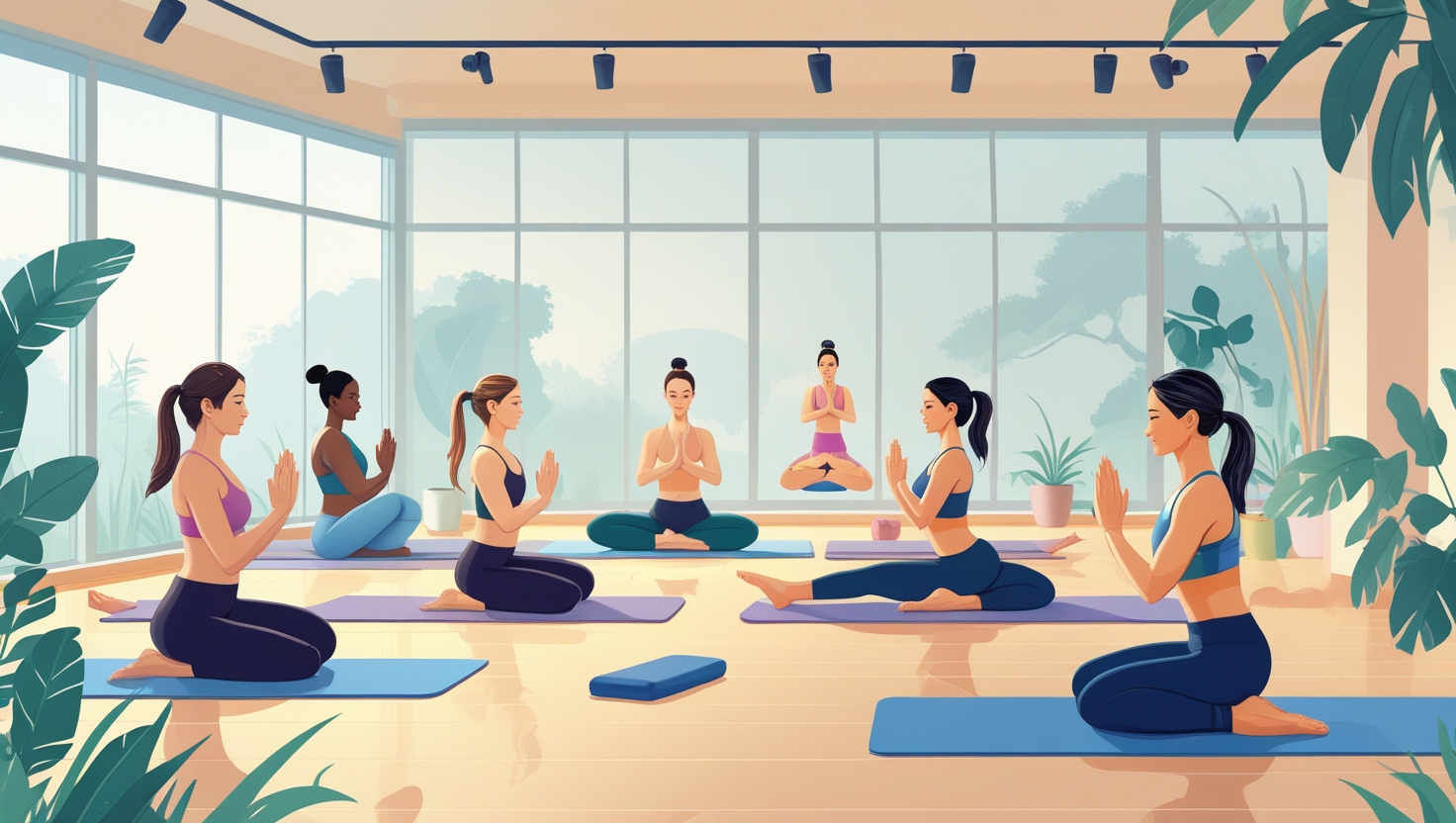In today’s high-pressure world, stress and poor sleep quality have become widespread issues affecting millions of people. Whether you’re dealing with a hectic work schedule, family responsibilities, or the constant barrage of digital distractions, finding effective ways to reduce stress and ensure a good night’s sleep is essential for your overall well-being.

This comprehensive guide presents 10 proven strategies to help you reduce stress and improve your sleep quality naturally. The tips provided here are backed by scientific research and expert advice, ensuring that you have practical, actionable steps to transform your daily routine.
Subscribe to Our Newsletter for More Health Tips and Exclusive Offers!
Strategy 1 – Establish a Consistent Sleep Schedule
One of the simplest yet most effective ways to improve sleep quality is by setting a consistent sleep schedule. Going to bed and waking up at the same time every day helps regulate your body’s internal clock, making it easier to fall asleep and wake up refreshed.
Why It Works:
- Circadian Rhythm Regulation: A consistent sleep schedule reinforces your body’s natural sleep-wake cycle.
- Improved Sleep Efficiency: Consistency helps your body enter deeper sleep stages.
- Reduced Stress: Knowing you have a set schedule can reduce anxiety about sleep.
Tips:
- Aim for 7-9 hours of sleep per night.
- Even on weekends, try to stick to your regular sleep time.
- Use an alarm clock and establish a calming bedtime routine to signal your body that it’s time to sleep.
Natural Supplements for Better Sleep: Benefits and Recommendations
Strategy 2 – Create a Relaxing Bedtime Routine
Establishing a pre-sleep ritual can signal your body that it’s time to wind down. A calming routine can involve a series of activities that help you relax and transition into a state conducive to sleep.
Effective Bedtime Routine Ideas:
- Reading a Book: Choose a light, non-stimulating book.
- Warm Bath: Taking a warm bath can help lower your body temperature post-bath, promoting sleep.
- Gentle Music or White Noise: Listening to soft music or ambient sounds can calm the mind.
- Aromatherapy: Essential oils like lavender have been shown to promote relaxation and better sleep quality.
Strategy 3 – Practice Mindfulness and Meditation
Mindfulness and meditation are powerful tools for reducing stress and preparing your mind for sleep. By focusing on the present moment and quieting your thoughts, you can create a mental state that is more conducive to falling asleep easily.
How to Get Started:
- Guided Meditation: Use apps or online videos that offer guided meditation sessions tailored for sleep.
- Deep Breathing Exercises: Practice techniques such as the 4-7-8 breathing method.
- Mindfulness Journaling: Write down your thoughts to clear your mind before bed.
Scientific Insight:
Research shows that regular meditation can lower cortisol levels (the stress hormone) and improve sleep quality over time.
Join Our Meditation Challenge to Kickstart Your Journey!
Strategy 4 – Engage in Regular Physical Activity
Regular exercise is a cornerstone of good health and plays a vital role in reducing stress. Physical activity helps burn off excess energy, releases endorphins, and can lead to deeper, more restorative sleep.
Exercise Recommendations:
- Aerobic Exercise: Activities such as walking, jogging, or cycling can significantly reduce stress levels.
- Strength Training: Incorporating resistance training can boost overall health.
- Yoga and Stretching: Yoga combines physical activity with mindfulness, making it ideal for reducing stress and improving sleep quality.
Tip:
Avoid vigorous exercise close to bedtime. Aim to finish your workout at least 2-3 hours before you go to sleep.
Sign Up for Our Weekly Workout Plan for Better Sleep and Stress Management!
Strategy 5 – Optimize Your Sleep Environment
Creating an environment that supports sleep is critical. Your bedroom should be a sanctuary dedicated to rest and relaxation.

How to Optimize:
- Cool Temperature: Keep your bedroom cool, between 60-67°F (15-19°C).
- Darkness: Use blackout curtains to eliminate any light that might disrupt your sleep.
- Quiet: Consider earplugs or a white noise machine if you’re in a noisy area.
- Comfortable Bedding: Invest in a quality mattress and pillows to support your body.
Additional Tip:
Consider decluttering your room to create a peaceful, stress-free environment.
Strategy 6 – Limit Screen Time Before Bed
Exposure to blue light emitted by smartphones, tablets, and computers can interfere with the production of melatonin, the hormone that regulates sleep. Reducing screen time before bed is essential for ensuring that your body can prepare for sleep naturally.
Practical Steps:
- Set a Digital Curfew: Aim to stop using screens at least 1-2 hours before bedtime.
- Use Blue Light Filters: If you must use devices, enable blue light filters or wear blue light blocking glasses.
- Engage in Offline Activities: Instead of scrolling social media, opt for reading or listening to music.
Strategy 7 – Monitor Your Diet and Caffeine Intake
What you consume throughout the day can have a significant impact on your stress levels and sleep quality. A balanced diet, mindful of stimulants like caffeine, can help you sleep better and reduce overall stress.
Diet and Sleep Tips:
- Avoid Heavy Meals Before Bed: Large meals can cause discomfort and indigestion.
- Limit Caffeine and Alcohol: Both can interfere with your sleep cycle, especially if consumed in the afternoon or evening.
- Incorporate Sleep-Promoting Foods: Foods rich in magnesium (e.g., leafy greens, nuts) and tryptophan (e.g., turkey, dairy) can support better sleep.
Nutritional Note:
Consider timing your caffeine consumption to the morning hours to avoid its lingering effects at night.
Strategy 8 – Manage Stress with Relaxation Techniques
Stress management is integral to improving both sleep quality and overall health. There are various relaxation techniques you can incorporate into your daily routine to help manage stress levels effectively.
Relaxation Techniques:
- Progressive Muscle Relaxation: Tense and then relax each muscle group progressively to ease physical tension.
- Visualization: Picture a peaceful scene or scenario that calms your mind.
- Mindful Walking: Combine movement with mindfulness to clear your mind and reduce stress.
- Breathing Exercises: Techniques like diaphragmatic breathing can activate the body’s relaxation response.
Scientific Perspective:
Studies indicate that regular practice of relaxation techniques can lower heart rate and blood pressure, paving the way for more restful sleep.
Download Our Relaxation Techniques E-book for Daily Stress Relief!
Strategy 9 – Seek Professional Guidance When Needed
While self-help strategies are highly effective, sometimes professional guidance is necessary to manage stress and sleep disorders effectively. If you’ve tried multiple strategies and still find yourself struggling, consider consulting a professional.
When to Seek Help:
- Persistent Insomnia: If sleep disturbances continue for more than a few weeks.
- High Stress Levels: When stress begins to interfere with daily life.
- Mental Health Concerns: Signs of anxiety or depression that affect sleep quality.
Professional Options:
- Therapists: Cognitive-behavioral therapy (CBT) can be highly effective for stress and insomnia.
- Sleep Specialists: Consultation with a sleep expert may uncover underlying issues.
- Holistic Practitioners: Integrative medicine professionals can offer a combination of traditional and natural remedies.
Strategy 10 – Integrate Natural Supplements and Remedies
Natural supplements and remedies can support your efforts to reduce stress and improve sleep quality. While these should complement lifestyle changes, they can provide an extra boost to your well-being.
Popular Supplements:
- Melatonin: A natural hormone that regulates sleep cycles.
- Magnesium: Helps relax muscles and calm the nervous system.
- Valerian Root: Known for its sedative properties.
- Chamomile: Often consumed as tea, chamomile is renowned for its calming effects.
Important Note:
Always consult with a healthcare provider before starting any new supplement regimen to ensure it’s safe and appropriate for your needs.
Final Thoughts and Action Steps
Improving sleep quality and reducing stress is a multifaceted journey that requires commitment and consistency. The 10 strategies discussed in this guide offer practical and proven methods to help you achieve a better quality of life. From establishing a consistent sleep schedule to creating a sleep-friendly environment, every step you take can contribute to a healthier, more balanced lifestyle.
Quick Recap:
- Establish a Consistent Sleep Schedule: Set regular sleep and wake times.
- Create a Relaxing Bedtime Routine: Develop calming pre-sleep habits.
- Practice Mindfulness and Meditation: Use relaxation techniques to quiet the mind.
- Engage in Regular Physical Activity: Exercise to lower stress and improve sleep.
- Optimize Your Sleep Environment: Ensure your bedroom is conducive to rest.
- Limit Screen Time Before Bed: Reduce blue light exposure.
- Monitor Your Diet and Caffeine Intake: Adjust your consumption habits.
- Manage Stress with Relaxation Techniques: Incorporate methods to reduce anxiety.
- Seek Professional Guidance When Needed: Don’t hesitate to ask for expert help.
- Integrate Natural Supplements and Remedies: Enhance your routine with safe, natural options.
Implement these strategies gradually and observe the changes in your stress levels and sleep quality. Consistency is key, and even small adjustments can lead to significant improvements over time.
Subscribe Now for More In-Depth Guides and Personalized Health Tips to Transform Your Life!
Share this content:








One Comment